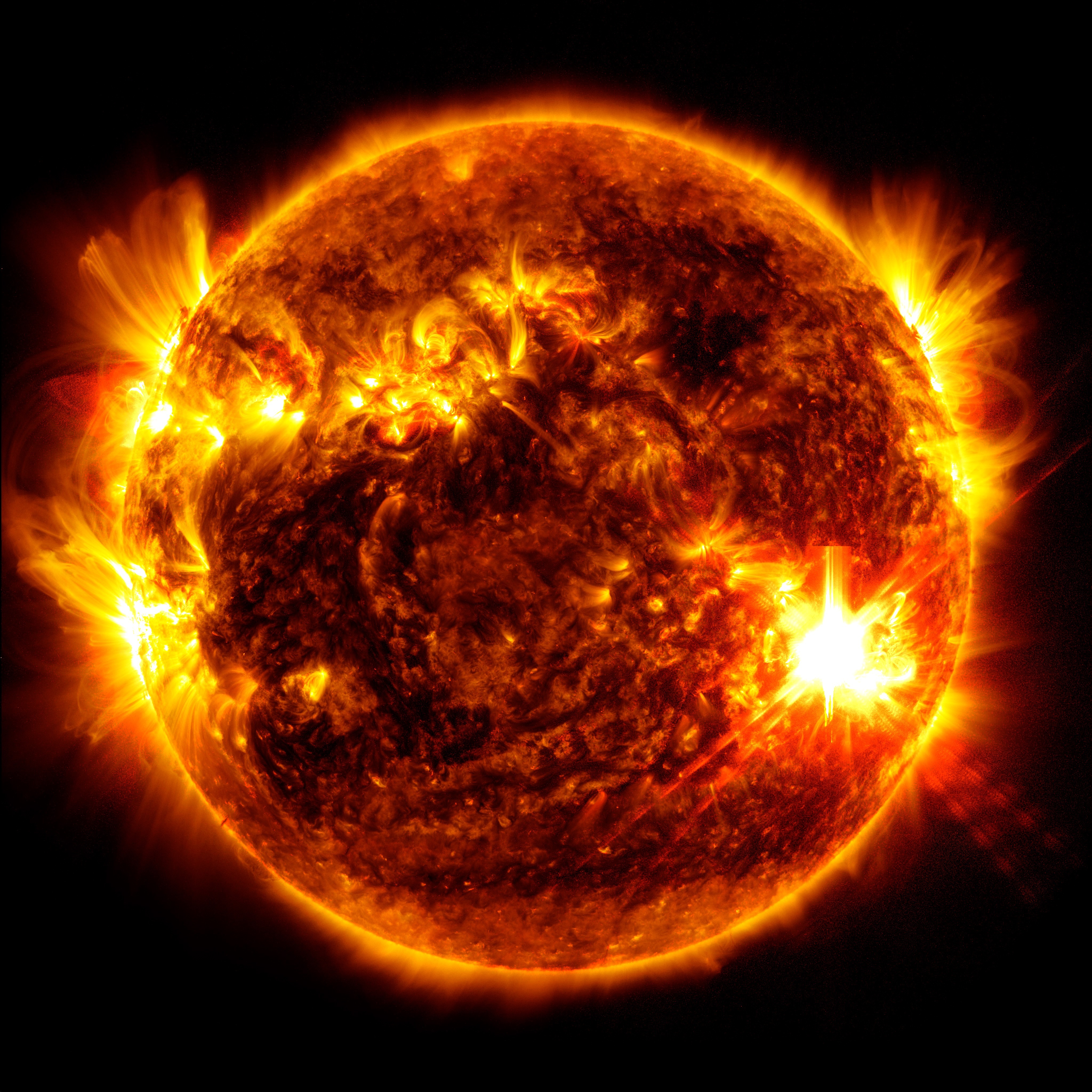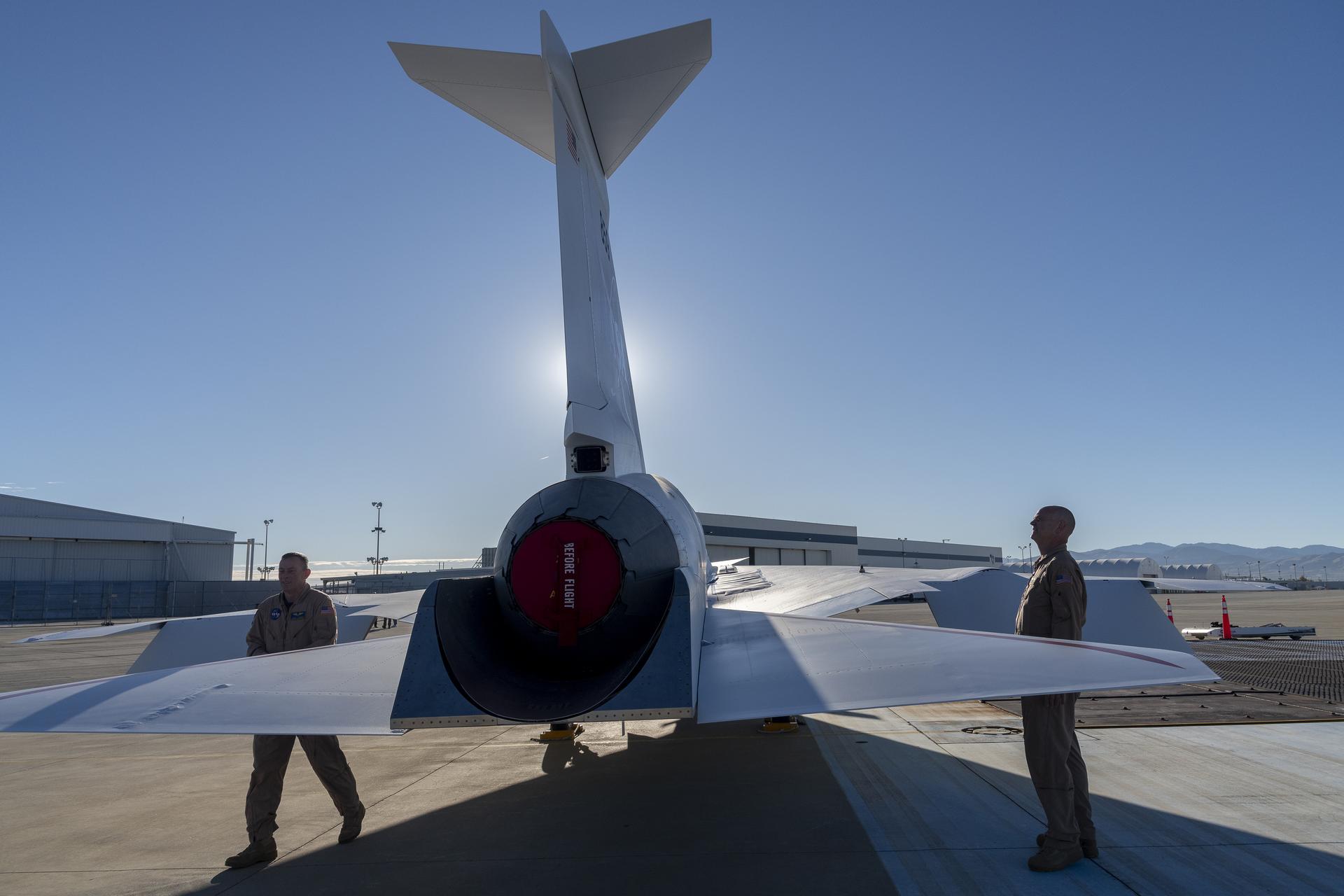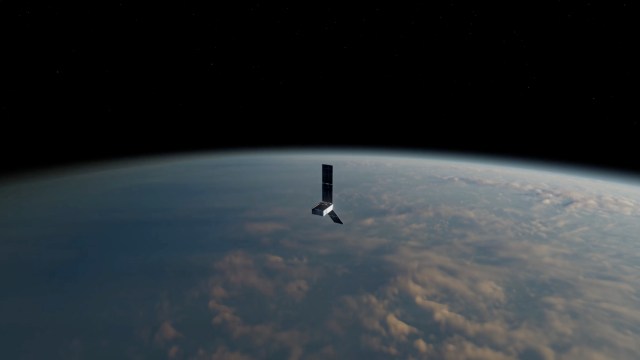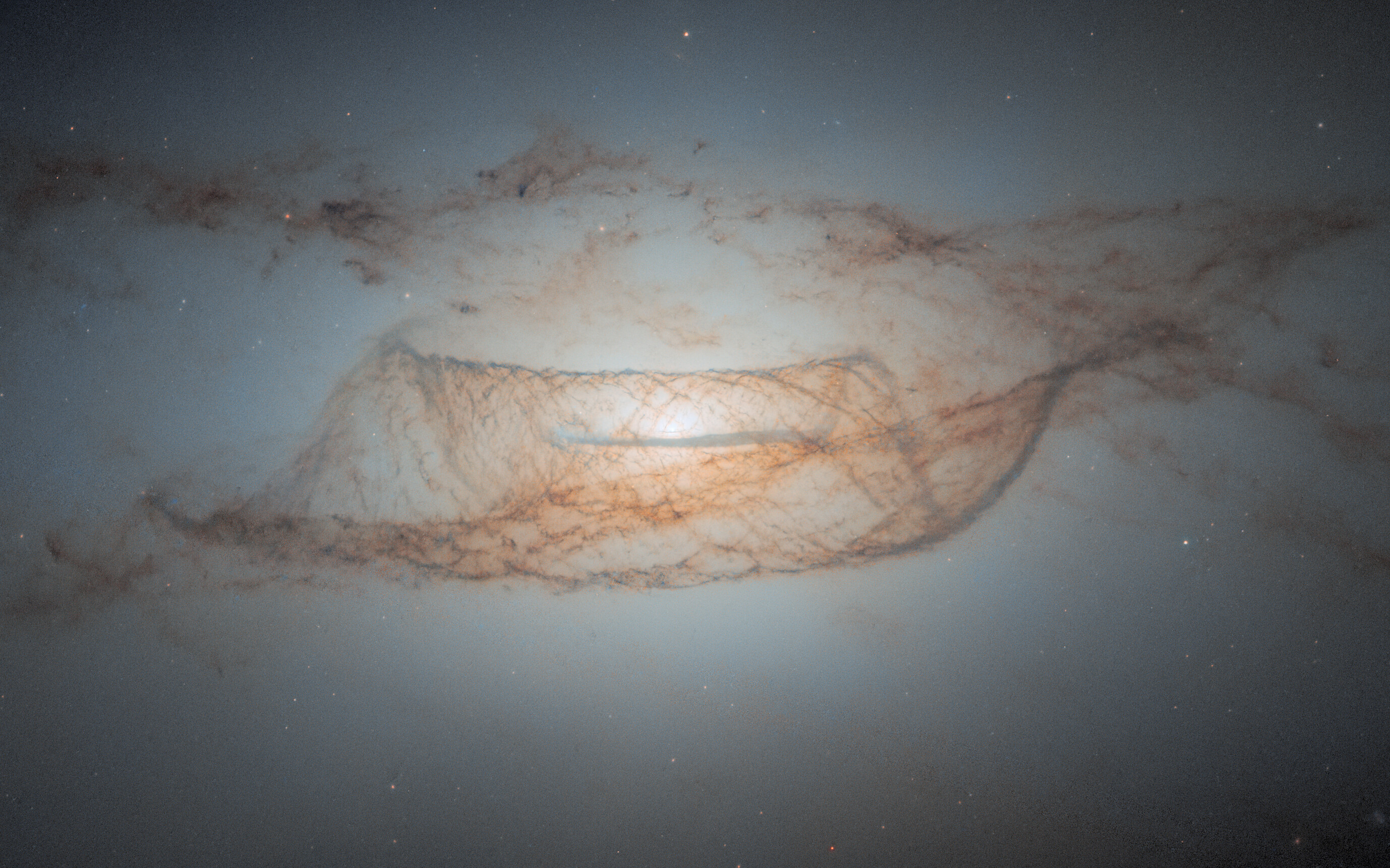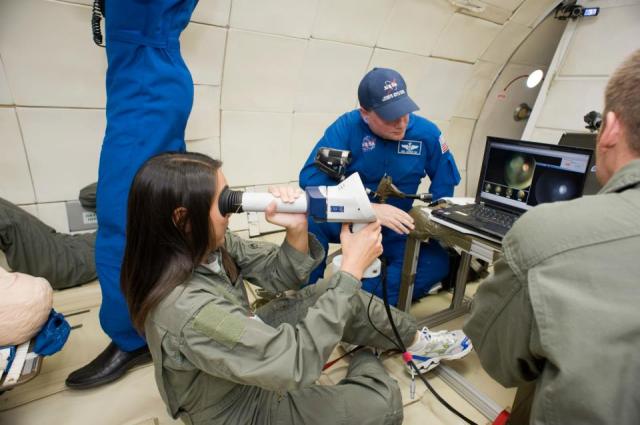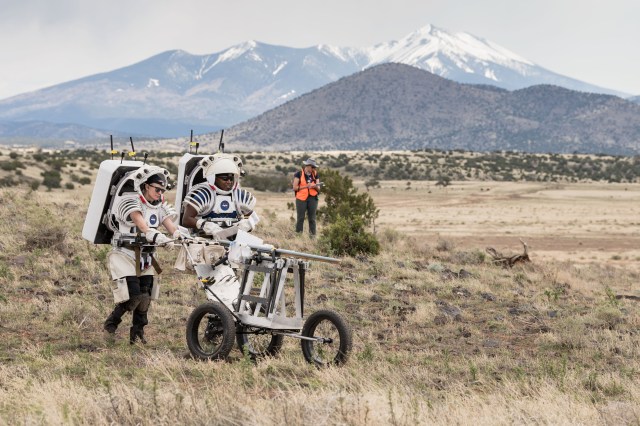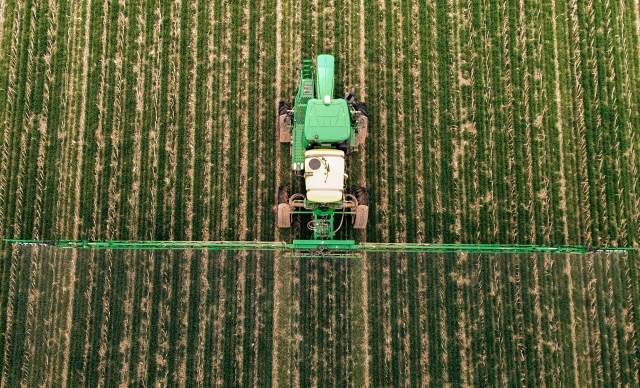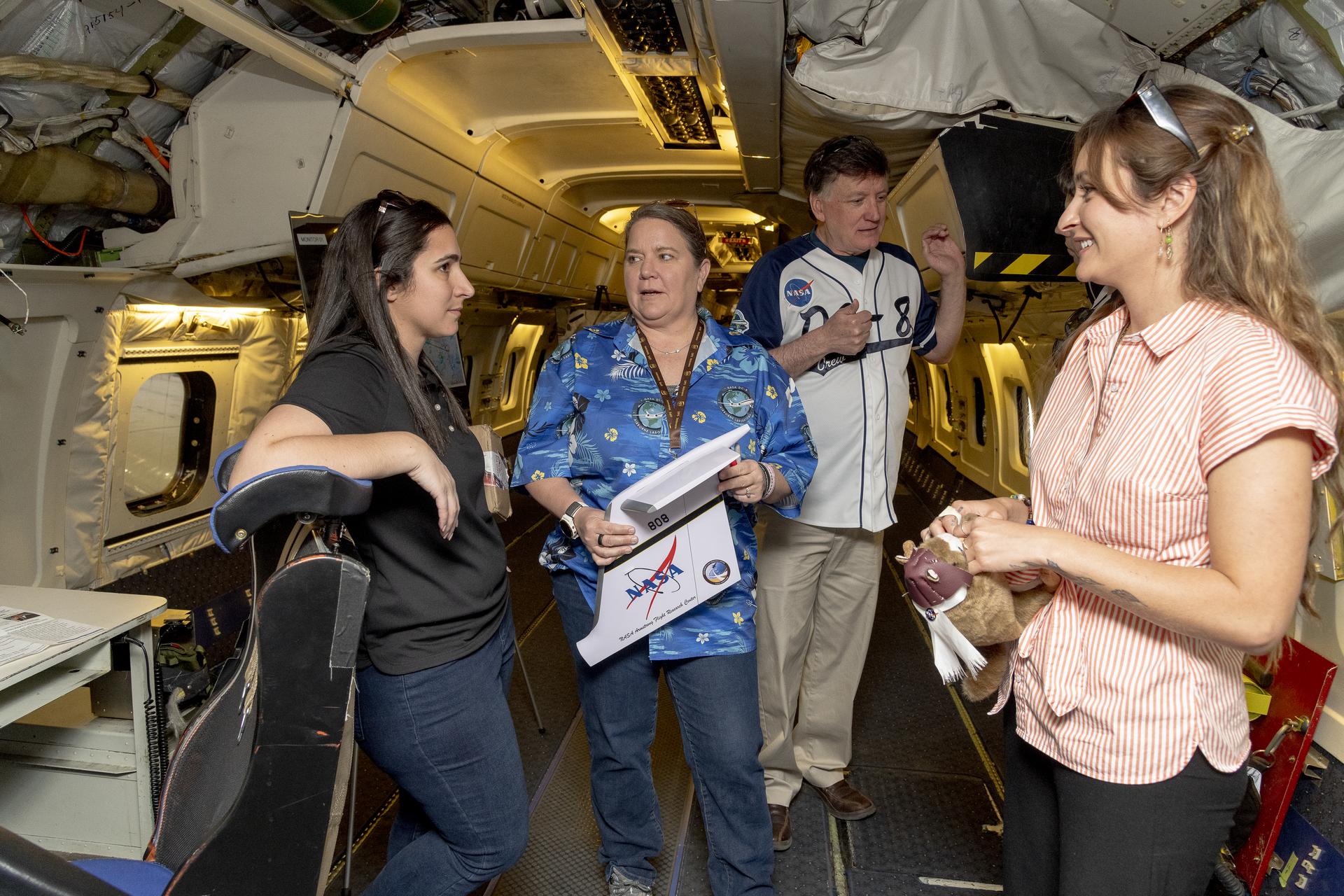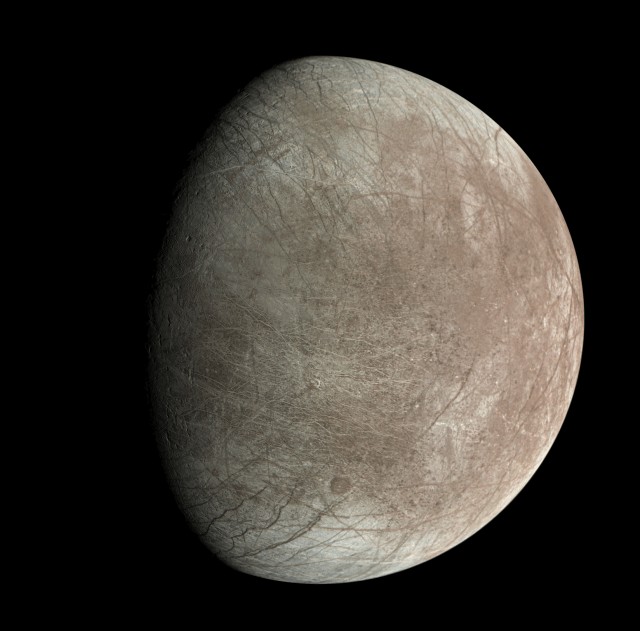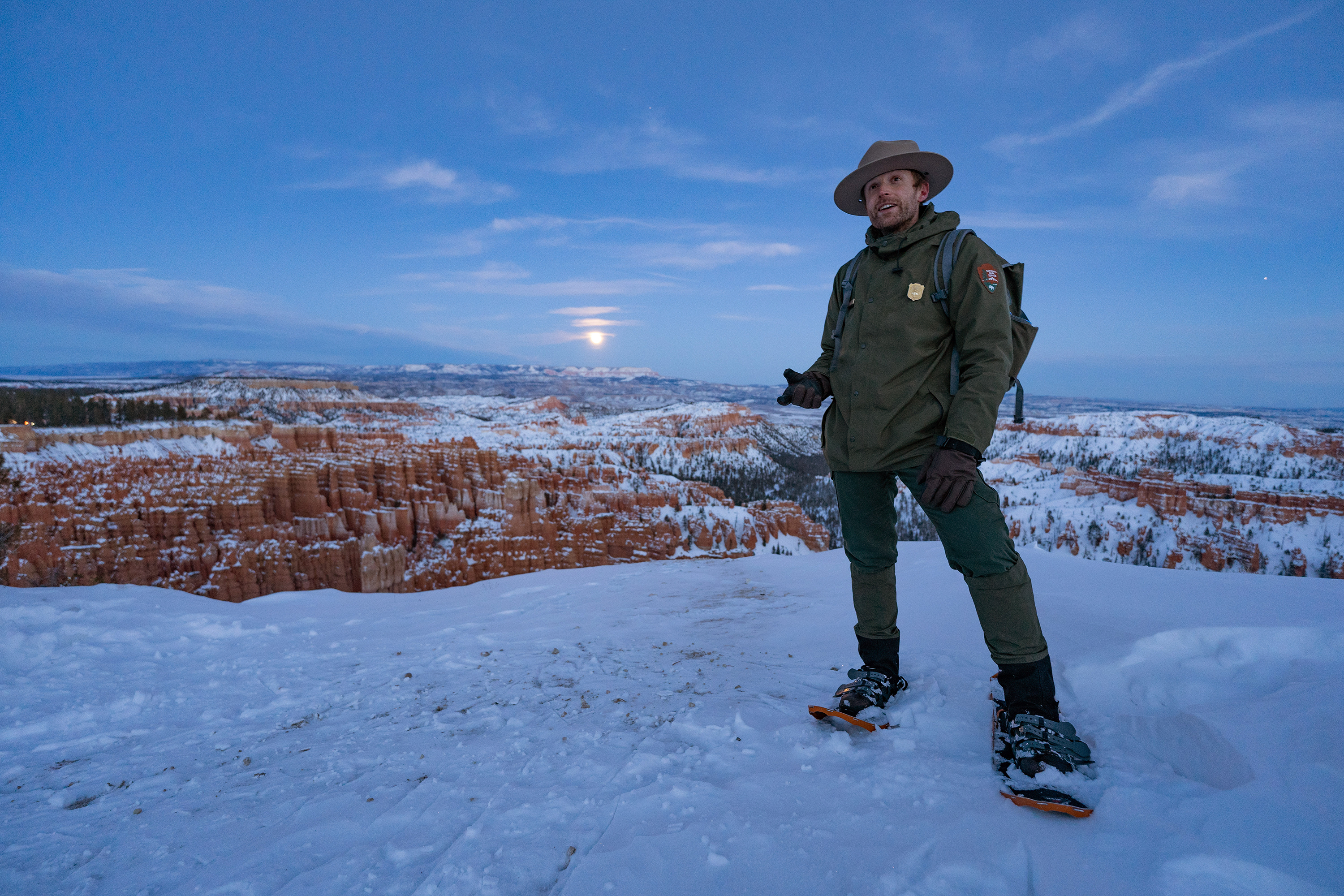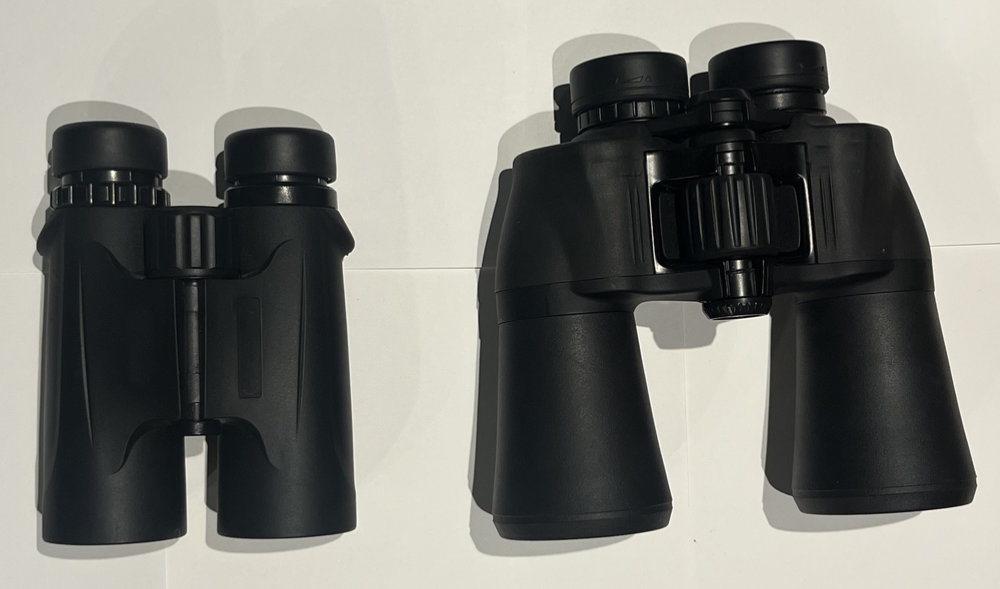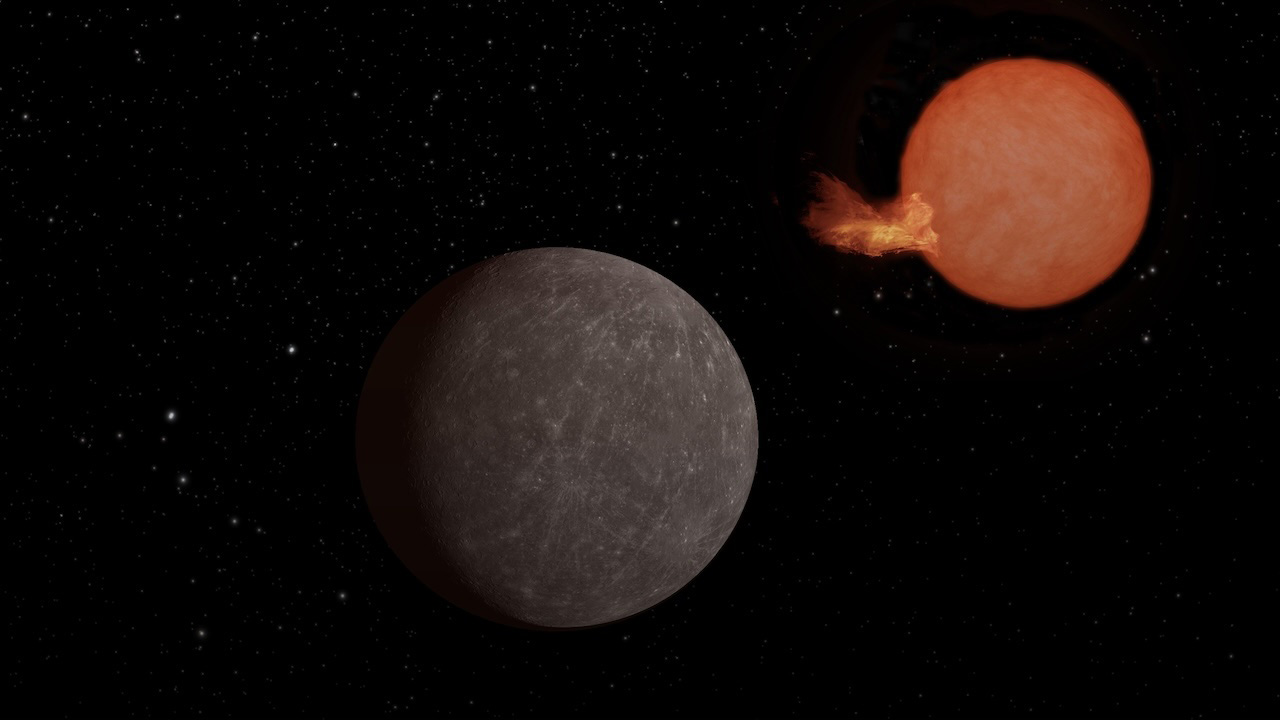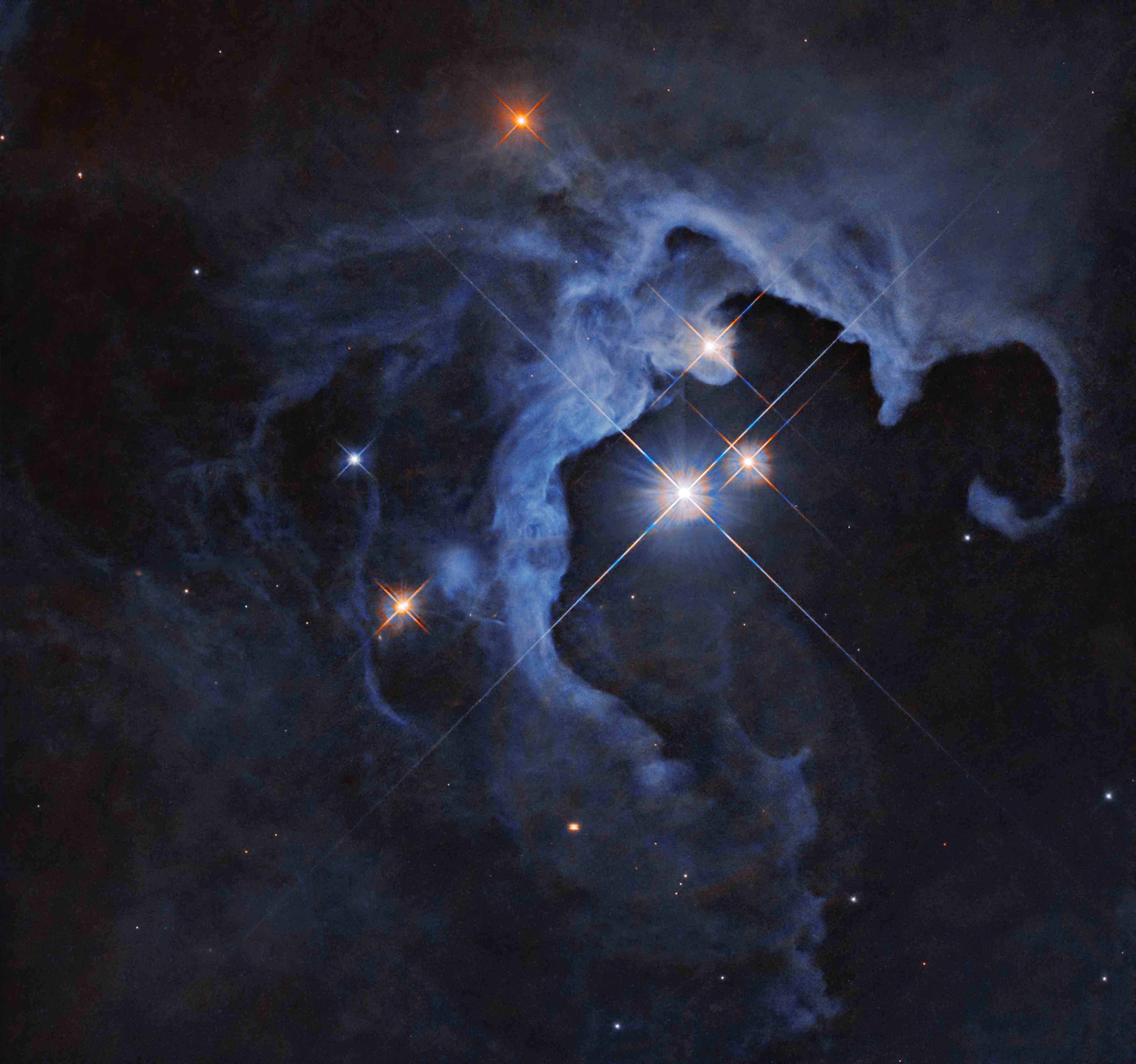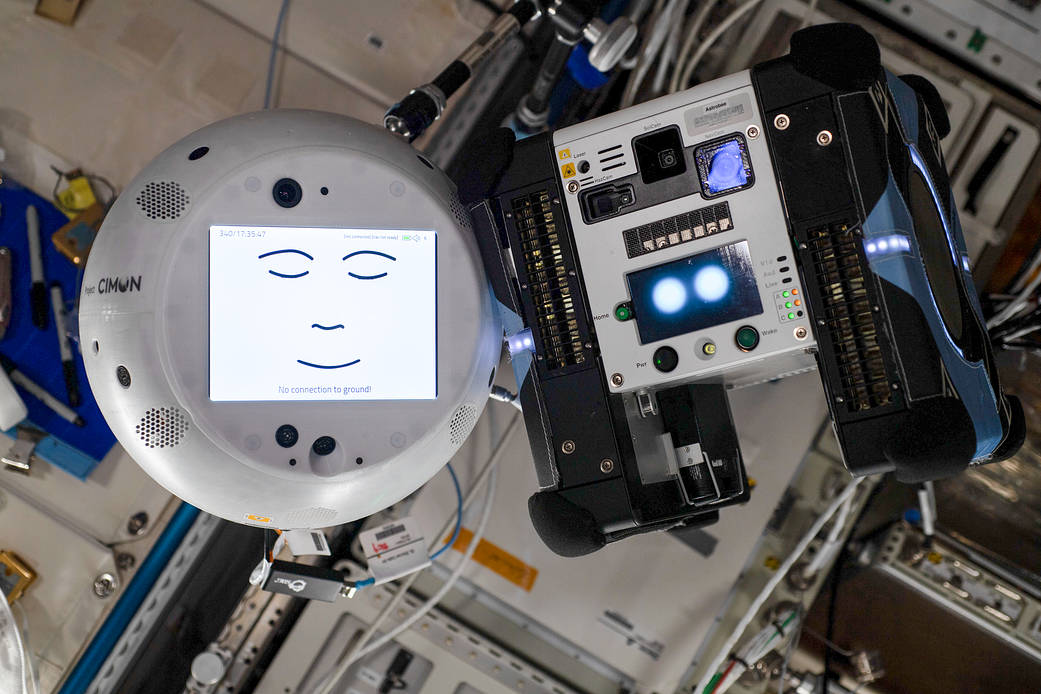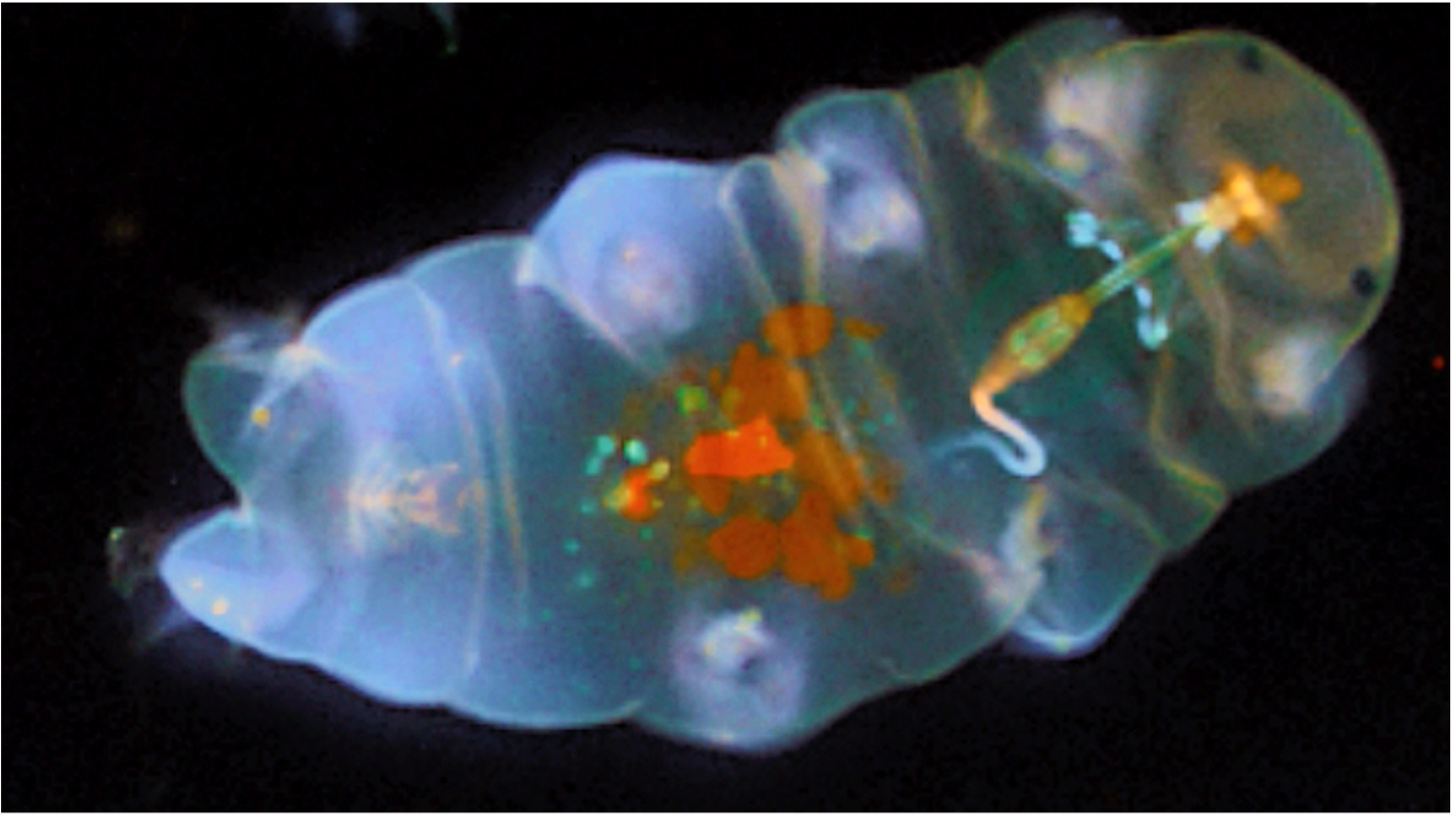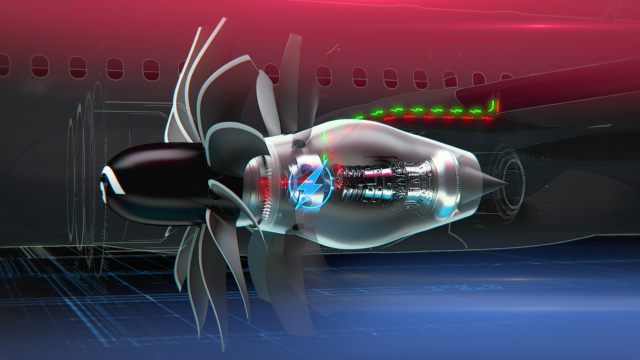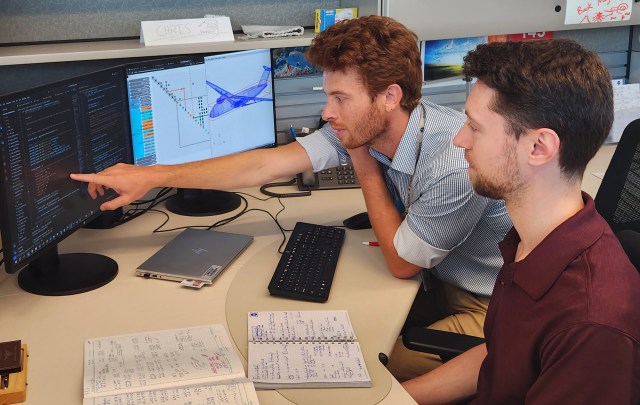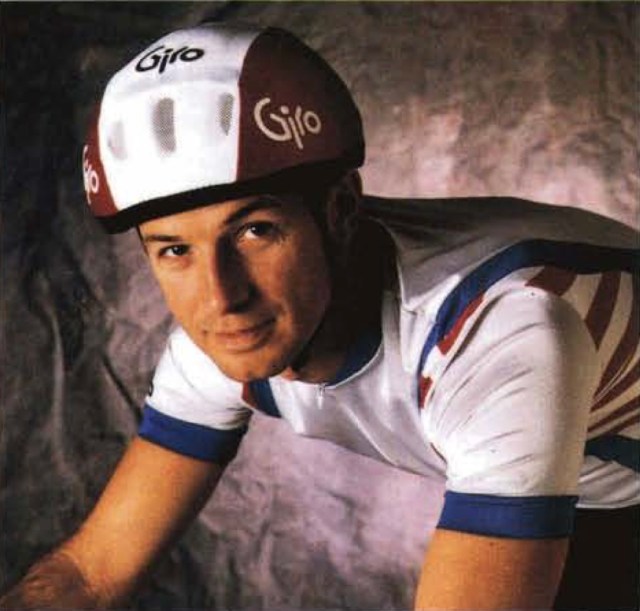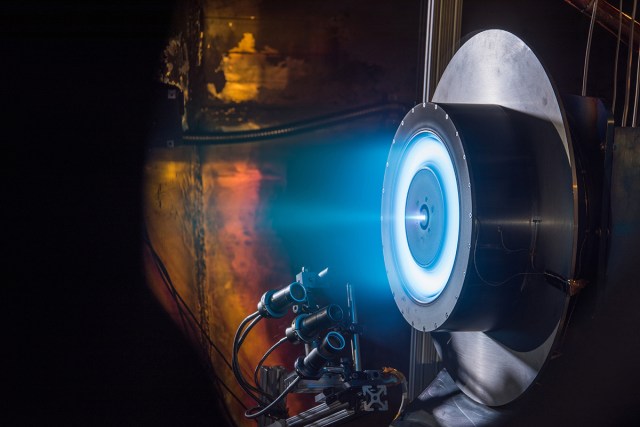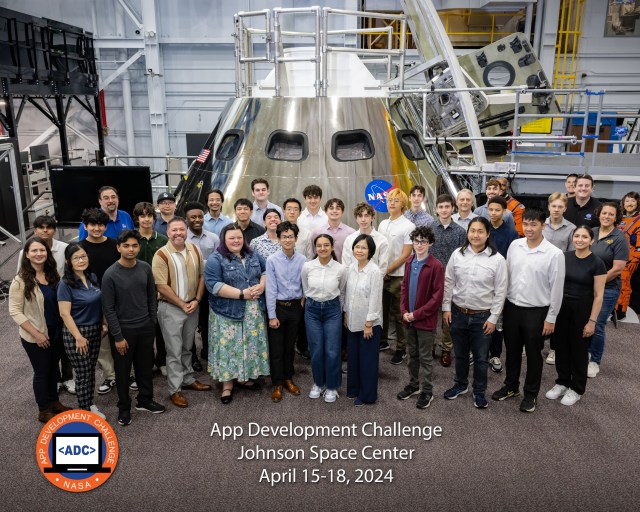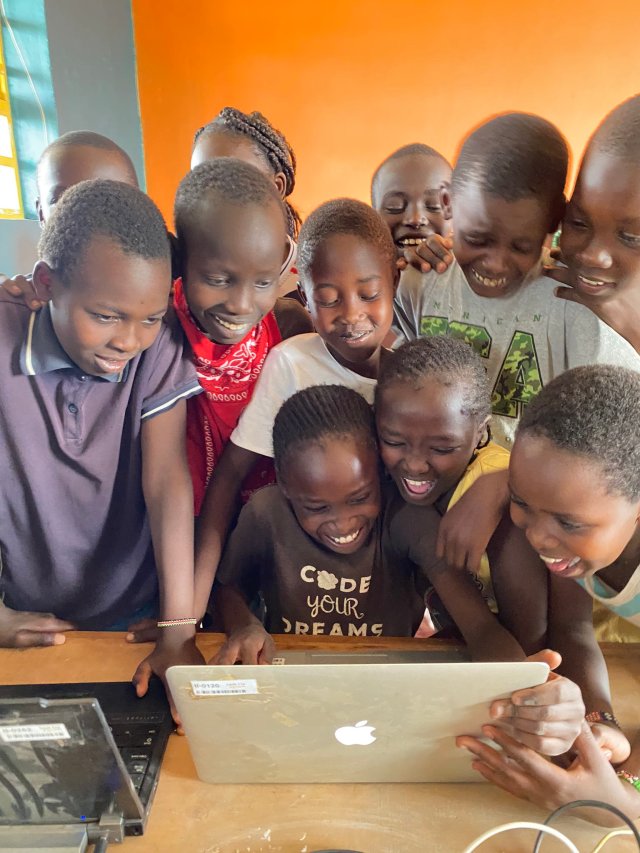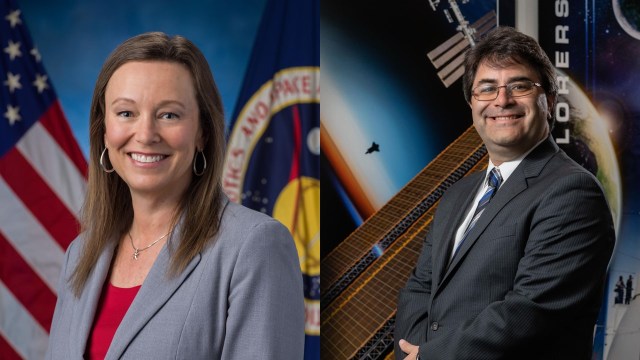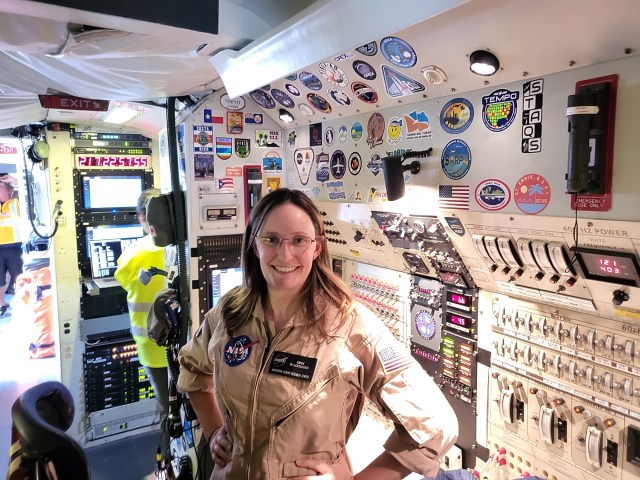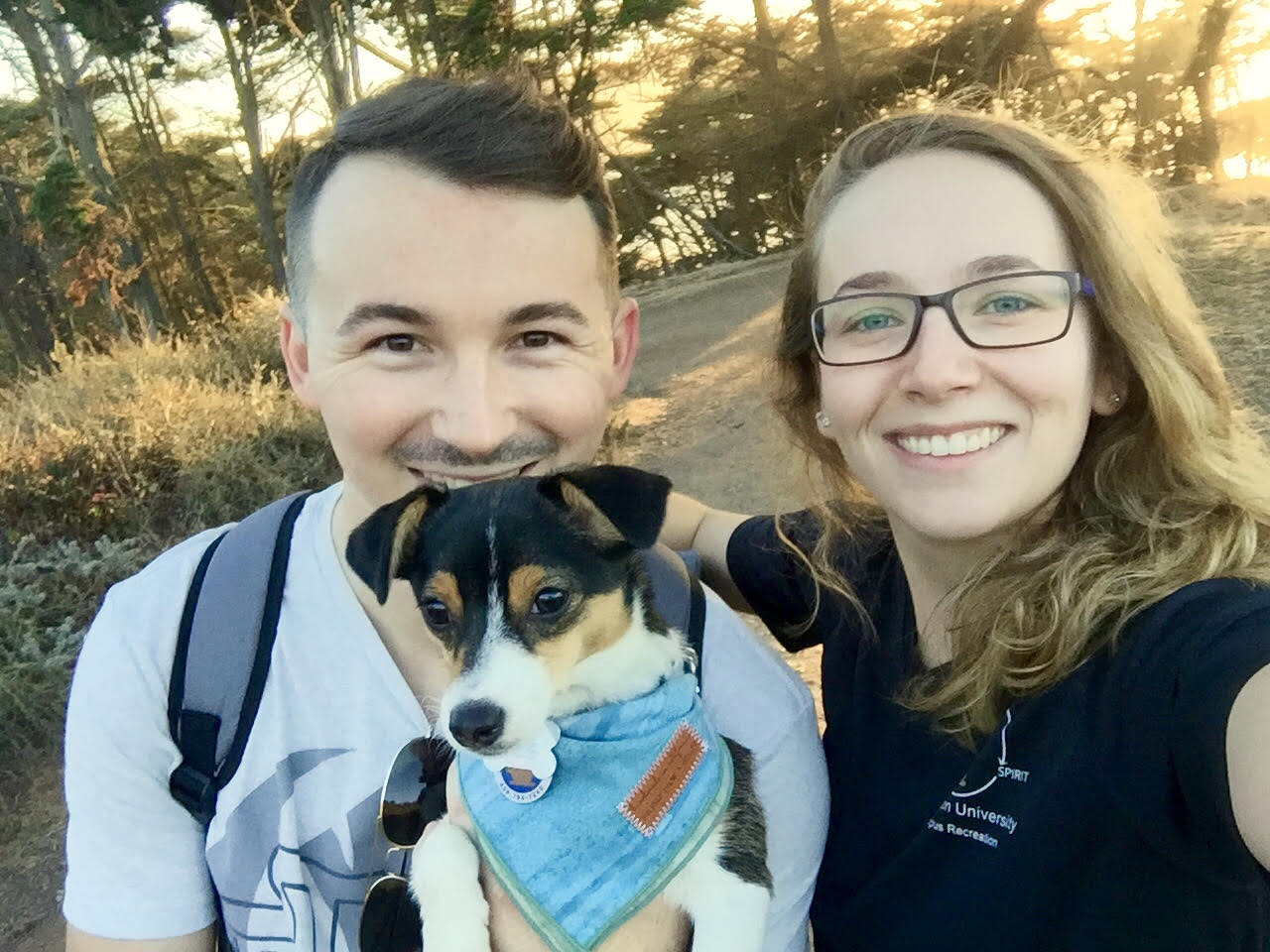- Where are you from? And What is your educational background?
I was born and raised in Minnesota. I went to college in Nebraska where I studied meteorology. I wanted to do that since I was a kid so I knew that I would go to school somewhere where there was a little bit more exciting weather, and that would be tornado alley, no doubt. I went to Nebraska, wanting to move away and experience something new.
From there, I was looking for research experience to graduate so I applied to a bunch of internships and one of them was at NASA – you could apply to several internships within this website and I was accepted here (Ames Research Center) so I came here for 10 weeks. I loved it and did really well so I asked Mel (Melinda Kahre) if I could stick around or work remotely. I did a little bit of work for research credit my senior year from Nebraska and then Mel offered me a full-time contract position so I moved out right after graduation. I’ve been here over a year now permanently, but about two years total working on some aspects of science with the MCMC (Mars Climate Modeling Center).
- What got you into Planetary Climates?
I was looking for meteorology programs and specifically at schools that had an accredited program in meteorology that would qualify me for the National Weather Service, because if you can qualify for that then you could do almost any meteorological job.
Creighton was one of those schools and it was in Omaha, a nice city. I went there but they closed my program in my first year. I fought to keep it alive and ultimately, they allowed me to graduate with the degree if I took the atmospheric classes while they were still being offered for those who were grandfathered in.
After kind of fighting that debate for 6 months or so, I realized “maybe it will serve me better to have a more interdisciplinary degree anyway,” so I did environmental science. I took the atmospheric science classes as they were offered when they closed out but because I wanted a broader degree, I also took a lot of environmental policy and history.
Then I had my atmospheric science background and calculus, and also took chemistry and biology which atmospheric scientists usually don’t take, they’ll take physics and math and move on from there.
So, by the time I needed research, my professors were gone from meteorology and they were willing to work with me remotely but I was looking for something that would be kind of hardcore research since I missed out all of those years of trying to get all the classes in. I just wanted to dive into research and really get a feel for it. I applied for several internships and I got one that was in the biology field that I really didn’t want to do and this other one that came up at NASA that was Mars related.
At first, I was confused thinking what I possibly could do with Mars and then realized, ‘of course there are other atmospheres that you can study!’ That was just mind-blowing for a moment. I realized this possibility [and] I thought it was super cool. Earth science is awesome but it’s also well studied so it’s competitive and it’s not so groundbreaking and publicly interesting, and a lot of it is politicized. With Mars, where everybody is like, “let’s go there! Let’s do this!”
I got into Mars, and then once I was studying it and realized how much we didn’t know, it’s kind of [like] I couldn’t stop, so I didn’t. I would like to do earth science but I’m happy doing Mars, maybe Venus or something else, but the planetary stuff is really cool!
- To what do you attribute your interest in meteorology from an early age?
The severe weather growing up. I was never scared of it. I was always immediately interested, asking questions about what a tornado is and where is it coming from? Why are we concerned? Why is this thunder so loud? Why is it sometimes not so loud?
I would sit and watch the news and the radar and I started to notice patterns. I found I could predict little things, not that impressive, like it’s about to rain within the next 10 minutes. I would bet my mom 10 bucks that it is going to rain within 10 minutes and she would bet that it’s going to rain maybe in a half hour. I won those bets probably 60% of the time, not very often, but I just love stuff like that.
My dad sent me something last week, he said it was “proof that you have always been interested in weather.” I had my old crappy Cannon disposable camera and I just took pictures out of the car window of all these clouds, just dozens of these photos, and he was like “I’m never throwing these out, they are great.”
- When did you know that you wanted to pursue this kind of science as a career?
Like Eugene Tu (Ames Research Center Director) is always saying, “have a plan, but don’t be afraid to deviate from the plan.” I was really stuck to my plan during my freshmen year, fighting for that degree to stay at Creighton, but ultimately I broke that mold and realized all the different areas you can go. You don’t need a specific degree to stay in atmospheric science, my degree is in environmental science, [but] I’m doing atmospheric science. I’ve just been open to anything ever since. And when NASA calls you and offers you a job, you just say “YES” and you figure it out from there.
- What’s your formal job here at Ames?
I’m an assistant research scientist. I have an undergraduate degree so I can’t yet be fully in charge of my own research but someone like Mel would let me have all the flexibility I could possibly have (that’s within reason). I’d come up with some ideas or projects and she’d help me shape them and then I’d get to do them.
- What’s your current project? What are you working on now?
I’m just finishing out my research that I started as an intern. That was researching the South Polar Cap of Mars and characterizing its behavior over the last several decades trying to see if the sublimation of C02 on the cap is not just seasonal, maybe it’s happening at a constant rate too. That would suggest that the Martian atmosphere is growing and gaining mass.
I was using Curiosity data to measure the annual fluctuations in Carbon Dioxide content of the atmosphere and to characterize what the mass of the atmosphere is. Then I can go back and look at Viking data from the 70’s and do the same thing there, characterize the mass of the atmosphere at that time, and look at the change overall.
So far, we’ve found that there is really very minimal change if any. We are writing that up and we are going to publish it hopefully this year, or at least submit it for publishing. I’ve presented on that at several conferences and for my undergraduate graduation requirement.
Since then, just this year, I’ve started looking deeper into other Martian craters to characterize the general atmospheric circulation within them based on crater morphology. We are looking at what kind of pressure and temperature cycles you see within those and that’s an interesting question because MSL measured greater variations in the atmospheric pressure in Gale Crater than we expected based on model results, so we want to know why that is. And we haven’t fully formulated all the science questions but it’s really guided by the fact that what we had expected to see hasn’t been what we’ve seen from MSL.
- What is the significance of the job you’re doing to NASA’s overall mission?
Especially with the Journey to Mars, we want to know everything that we possibly can before we go there. Although the bigger concerns are radiation and its effects in people being on Mars, it’s not trivial to look at the carbon dioxide cycle or the dust cycle and get to know, “could we land something during a dust storm? If it’s not really safe, how might we predict those better?” With our models, we could find a window when you would send people to Mars, let people know that we should maybe send a sample return mission to Mars before sending people, or just in general, letting the public know that you wouldn’t breathe the air on Mars. It’s mostly Carbon Dioxide. Doing research on the atmosphere gaining mass could affect entry, descent and landing calculations. It’s important to know that maybe the mass of the atmosphere isn’t changing, so we don’t need to worry about that.
There is a lot of relevance to the political goals that the administration has regarding Martian exploration and a big part of that is going to require improving models. We want to make sure that our Mars model is much more up to date and is ready to answer questions for other teams too. That is a big thing that Mel has really started in the last several months that she has been in charge of the MCMC. She is really big in getting our model ready to help other groups and in letting other groups know that they can come to us to simulate something and use it for science and largely for the Journey to Mars.
- What’s a typical day like for you?
I spend a lot of time talking to the rest of my team on the MCMC. There is about 10 of us, we meet at least twice a week formally, we discuss all the different science research that we are doing individually and in small groups. We also discuss model development, usually, we take issues in the model and divide them up among people to recode or delete or fix or implement.
I spend a lot of the time at my desk doing straight up programming, coding, or just running analytics on the model.
And I spend a lot of time organizing, too. The MCMC has grown a lot in the last two years and I’ve been a major part in getting it organized, which helps our group be more productive.
- What do you enjoy most and least about your job?
What I like most about my job is the freedom. I work on my own schedule and when I am feeling creative I can write or when I’m feeling more like I just want to get stuff done I can code. There are no day-to-day constraints on what I have to be doing as long as everything reaches the overall goal. I have the time and the tools to get my work done as I want to get it done and as I have ideas, so that’s probably my favorite thing.
My least favorite thing is when I get bogged down in coding. I will be writing code for hours, and not realize it’s been already 8 hours. The worst is when I have nightmares about coding, like dialing a phone when you can’t get the number right. But when I bring it up it turns out that everyone on the team has them too. That kind of stress is my least favorite part.
- What’s the most unexpected result that has come from your research so far?
I don’t know about unexpected results, I haven’t been here during a time where my research or anyone’s research within our group has been mind-boggling. But there are smaller things, like Kathryn [Steakley]’s Ph.D. project. She is looking at early Mars, how it might have been warm enough for liquid water. She’s run into issues of not being able to implement the Carbon Dioxide cycle and have the model run long enough, it will crash or something, so she asks, “why is that?” Or when we do see signals like MSL not reading what we expected it to read within Gale Crater – that could be a huge deal! It could be nothing, but it could be a huge deal.
I think the most exciting result is this dust storm that it is going on, because up until a few months ago, most of my time at NASA had been looking at the past, and everyone here was reminiscing on the 2007 dust storm and what that meant. Now that we have MSL and we have all kinds of satellites and abilities to view from Earth and space what’s happening on Mars, people here are just going nuts about the current dust storm. It’s cool to see the excitement instead of a past reflection on it. MSL is bringing us new data quickly so that’s exciting to watch, especially since I don’t know a whole lot about dust storm research. Mel does a lot of that, she has a lot of insight into what’s happening and possible predictions. Hearing about those things first hand is pretty incredible.
- Tell me about a favorite memory from your career.
They all have a similar theme. It is when I work with kids. Although it’s not part of my official job, I like to do outreach and go judge science fairs in the local area. I’ve talked to middle school students during their lunch break, little things like that, where people who I just see myself in are asking questions about how to get to where I am and looking at me saying “oh we thought we were getting a NASA scientist, like an old dude.” So I get to say, “yes, I know you expected that, and that’s why I signed up. Because it’s important that you see a young woman and that I didn’t have to work my entire life to get to NASA. That you can maybe start here and decide to move on or keep your ties and do something else too.” I just love to open up the minds of kids to what degrees can lead to.
- Who inspires you?
When I was a kid I was a fan of Paul Douglas, he was on channel 4 in Minnesota and he tweeted at me the other day and I thought “oh, the little-girl-Courtney would have been starstruck!’
The person who inspires me today has to be Mel, and she is going to be so mad that I said that by the way, because I keep mentioning her on the internet and she doesn’t like to be on the internet. Mostly because Mel is doing the thing that I want to be able to do, which is mentoring the next generation without expecting anything in return, giving all of her time to me, offering me an opportunity to work here with an undergrad degree, that’s more than unique and special and more than I could have ever asked for from her.
- And you are getting a new degree, right?
Yes, I’m going to grad school, that’s the goal. It will be in atmospheric science, so now I will get that degree! The program will be more relevant to a thesis on Martian atmospheric science [as opposed to Earth science] and will require about 20 classes about the physics of the atmosphere.
- What would your dream job be?
It was the National Weather Service, but now it is here. I am now more concerned about a work-life-balance type of thing. I want to like my job but I want to have enough time at home, too. I want to have the flexibility to move somewhere else. My dream job, it could be here but it would be more of a leadership position, something like Mel, where you are not totally taken away from the science but you are doing some sort of mentorship or leadership. I could also see myself doing some sort of nonprofit startup one day that would be science related.
- What advice would you offer someone who wants a career like yours?
You have to let go of the strict plan so you can accept the opportunities that come to you because when those opportunities are not fully related to your interests, it doesn’t mean that they won’t be related to what you ultimately want to do.
- What do you do for fun?
I like to play racquetball. Alex and I, Alex is my partner, he moved out here with me from Nebraska and we are competitive racquetball players. We make a really good team so we have a wall full of our medals and awards, which are mostly from our time in Nebraska, regional stuff. Beyond that, I have a puppy. I was big about adopting/rescuing a dog as soon as I could. We took Mabel off the streets and into our home and I’ve trained her to do crazy things. Just yesterday I trained her to get her on my feet when I lay down so she could stand on my feet like an acrobat, so I love playing with my dog. I’m getting her into being sort of a service animal for hospitals, like the kind that visits people and provides companionship
- What accomplishments are you most happy about that are not science related?
Graduating from college. My parents, both of them, didn’t graduate college, and growing up it was a huge deal that we were going to go and we were going to finish. They both got part way through their college careers and it sort of haunted them ever since. I guess I saw myself going to college but I didn’t see myself graduating, so when I graduated I was sort of surprised like, “wow I passed this point my parents were at and now I’m in uncharted territory that I don’t know how to navigate.” To think that I have more education than my parents is kind of odd, but they are so proud of that. Seeing their faces light up at graduation was everything. I’m also the oldest in my family, so my sisters watched me as an example of what they can do, too.
- If you were given the chance with NASA, would you like to go to Mars?
NO. No way. I panic at the idea of going to space because there is no defined “up” and “down.” On the ISS, astronauts are using instruments placed all over the walls and various angles so sometimes they’re working upside-down relative to each other. It’s dizzying to even think about. The way we’ve seen the earth from space is in photos where north is “up” because it is what we’re generally used to, but that’s just what humans have dictated as normal so if I went to space and looked out a window to find Earth looking sideways, I would probably faint. Beyond that, there’s the ~8-month trip to Mars in a small space where you’re separated from the vacuum of space by inches of material – no thanks – and though Mars itself is awesome, it’s cold and the air is not breathable so for that and many other reasons, I could never truly go outside. I would be sad to be kept inside a spacesuit or a building at all times and to not actually feel free walking on another planet. Not to mention, there’s a lack of water and food available on Mars so that would make me nervous.
Needless to say, I don’t think I’m ever leaving Earth. Ever.
- What’s your favorite space image?
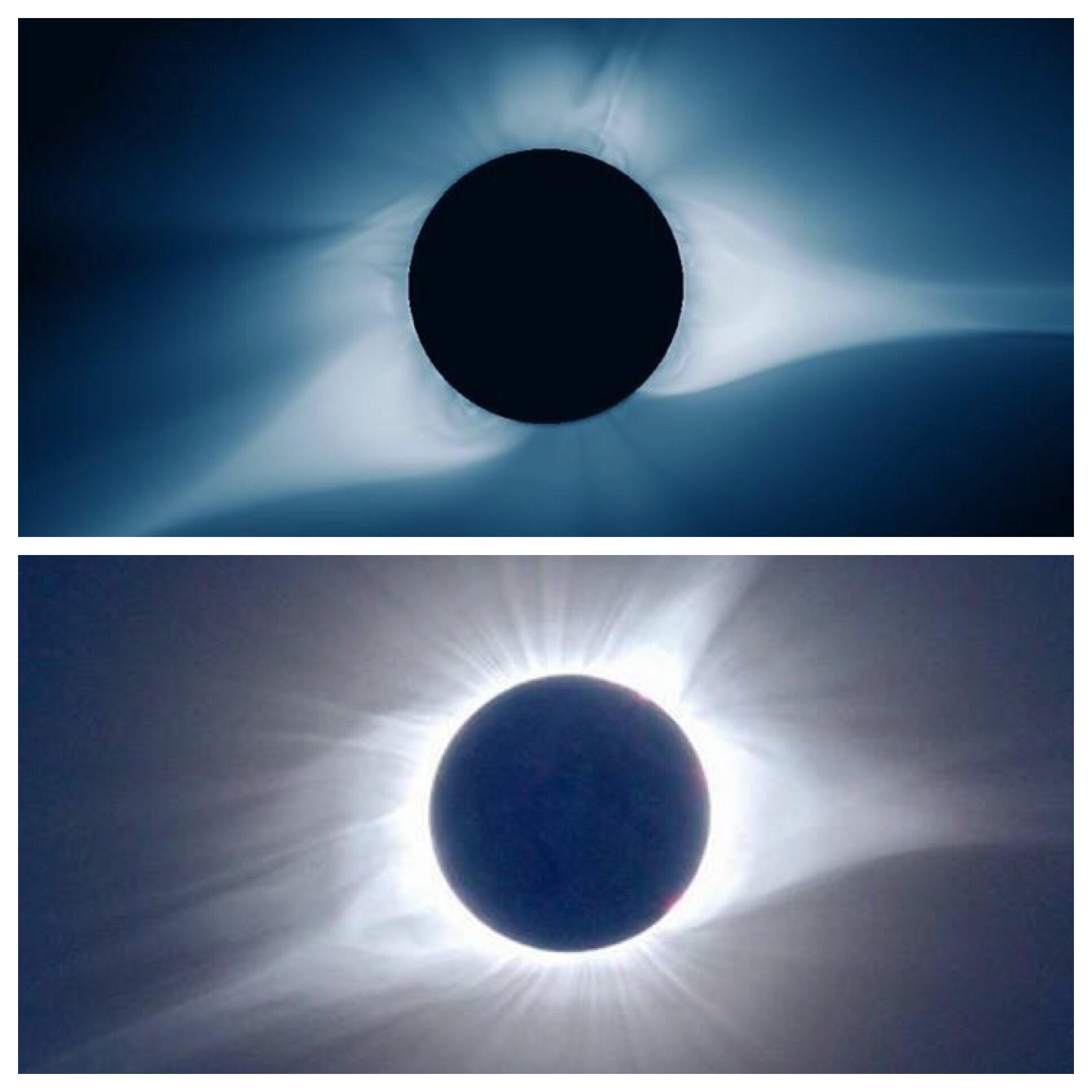
One of Courtney Batterson’s favorite quotes: “I love the person I’ve become because I fought to become her.” – Kaci Diane
[scald=305887:full_width]
Interview conducted by Fred van Wert and Sara Rojo on July 25, 2018.

